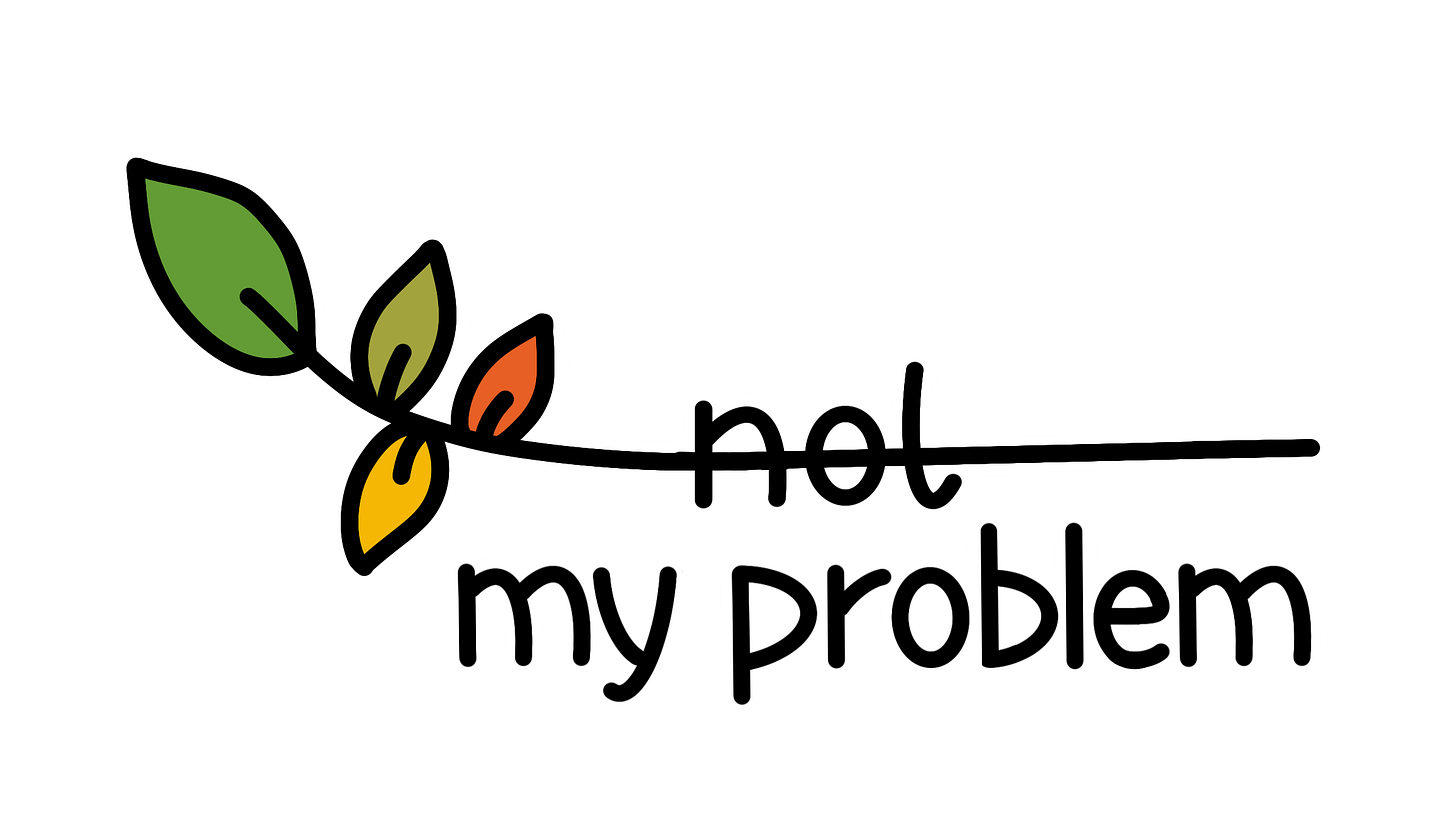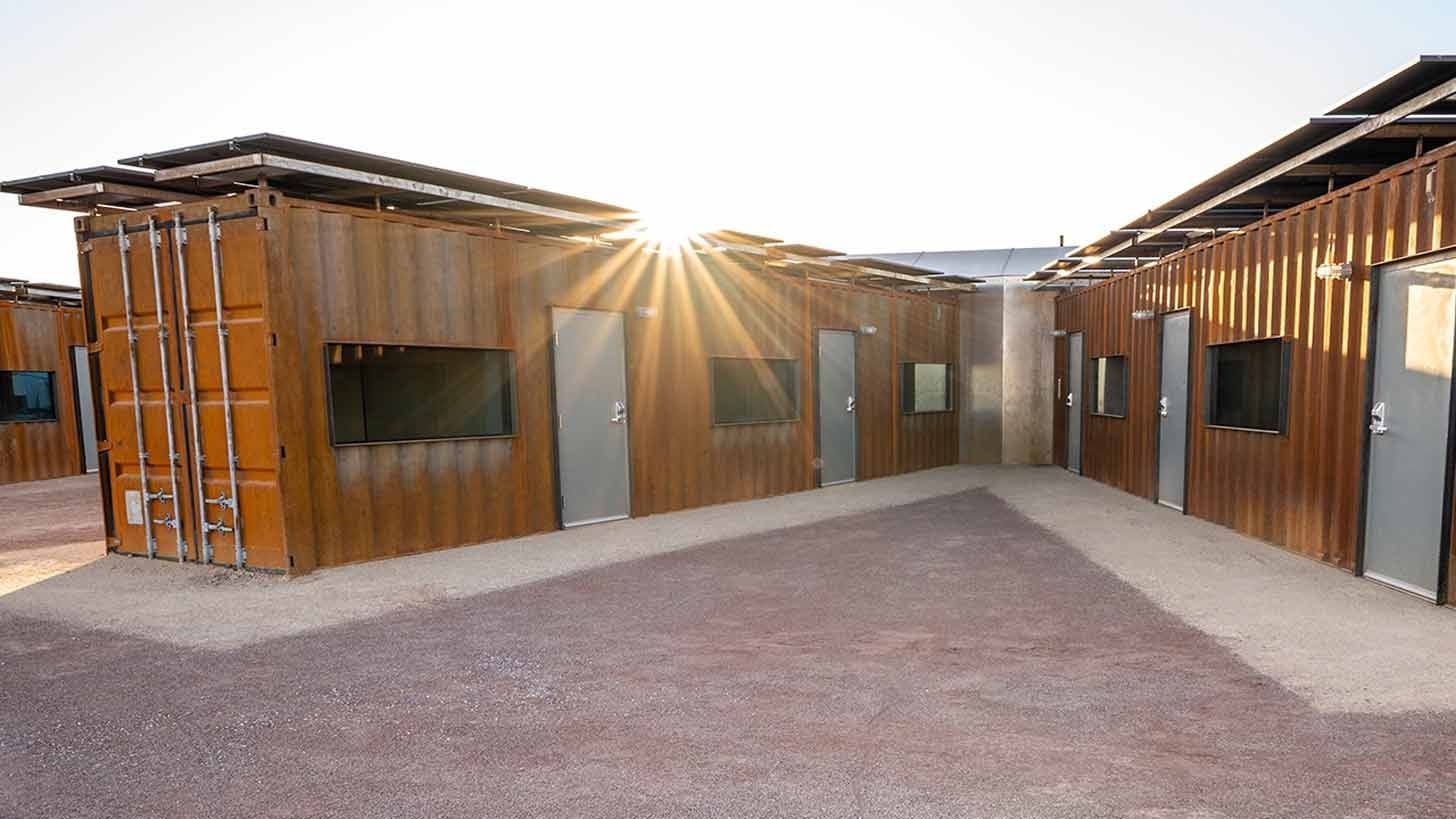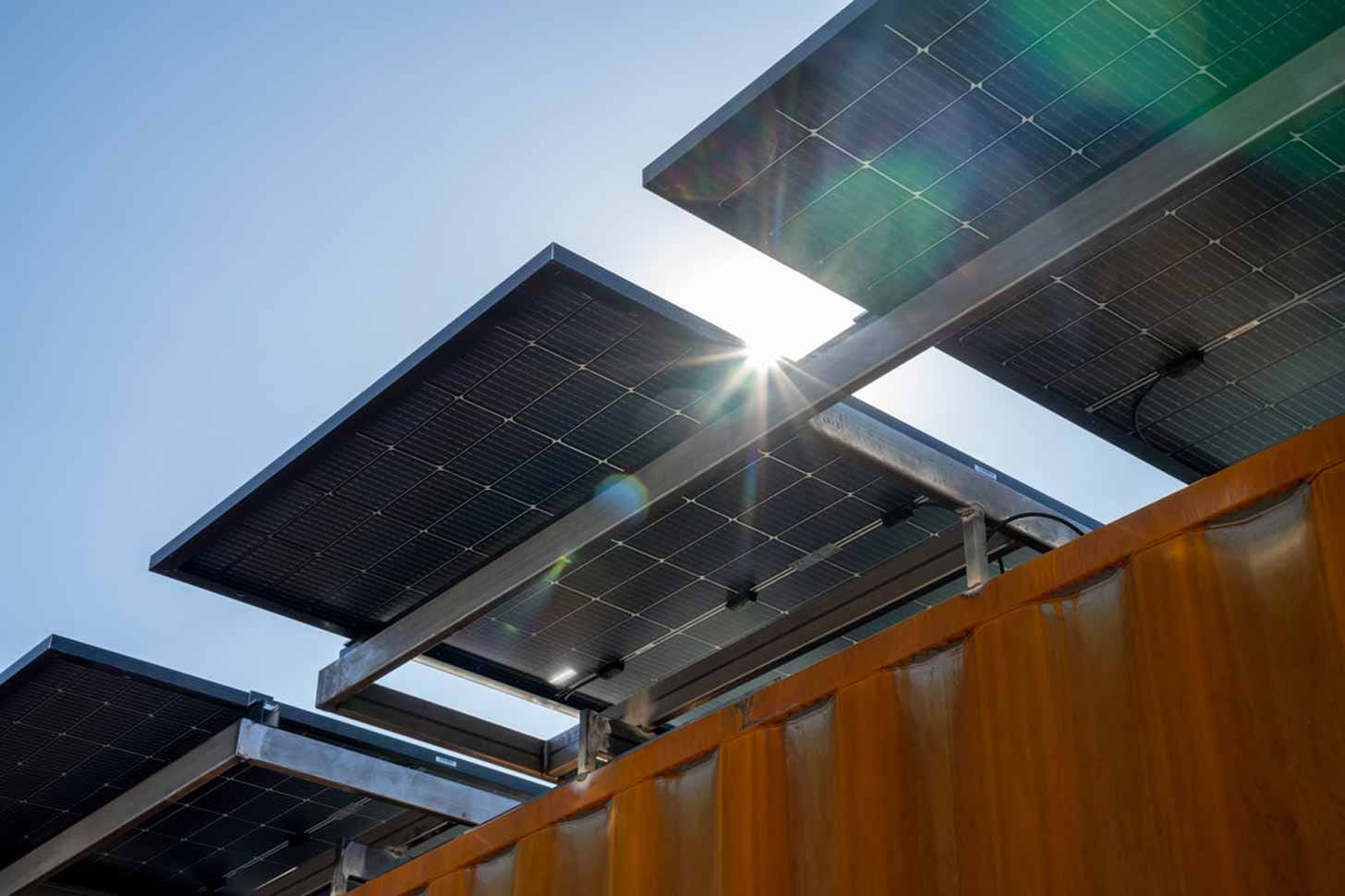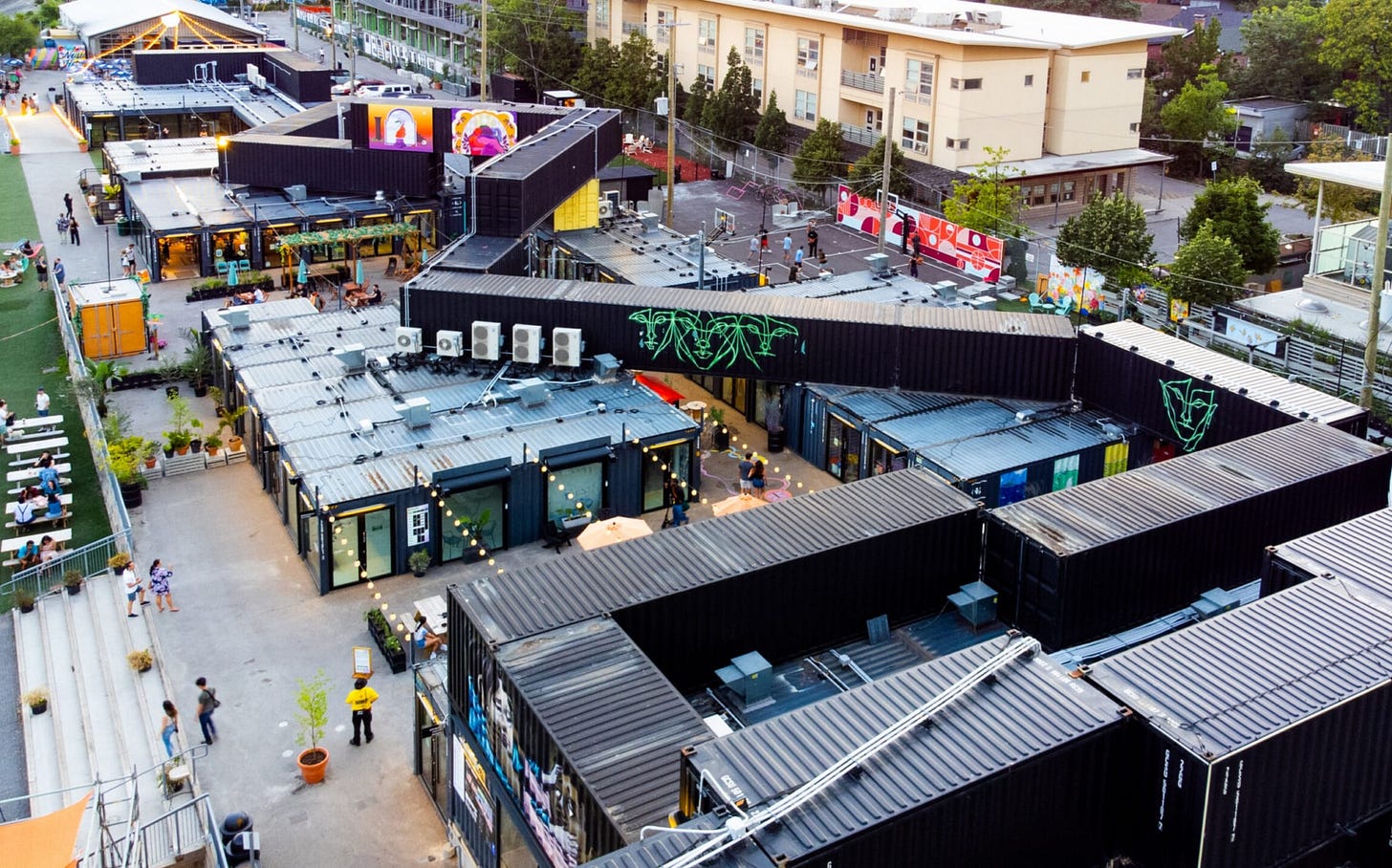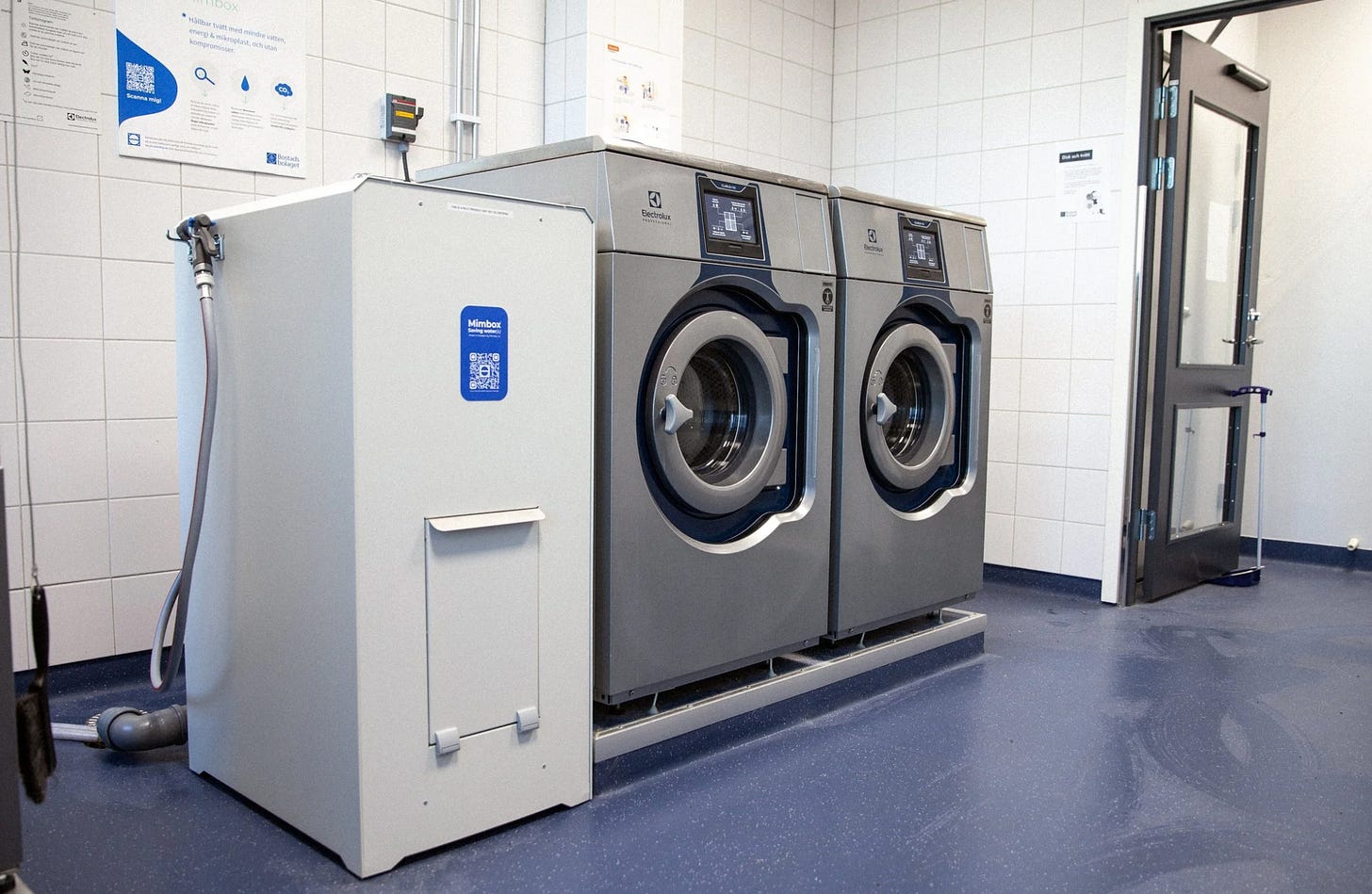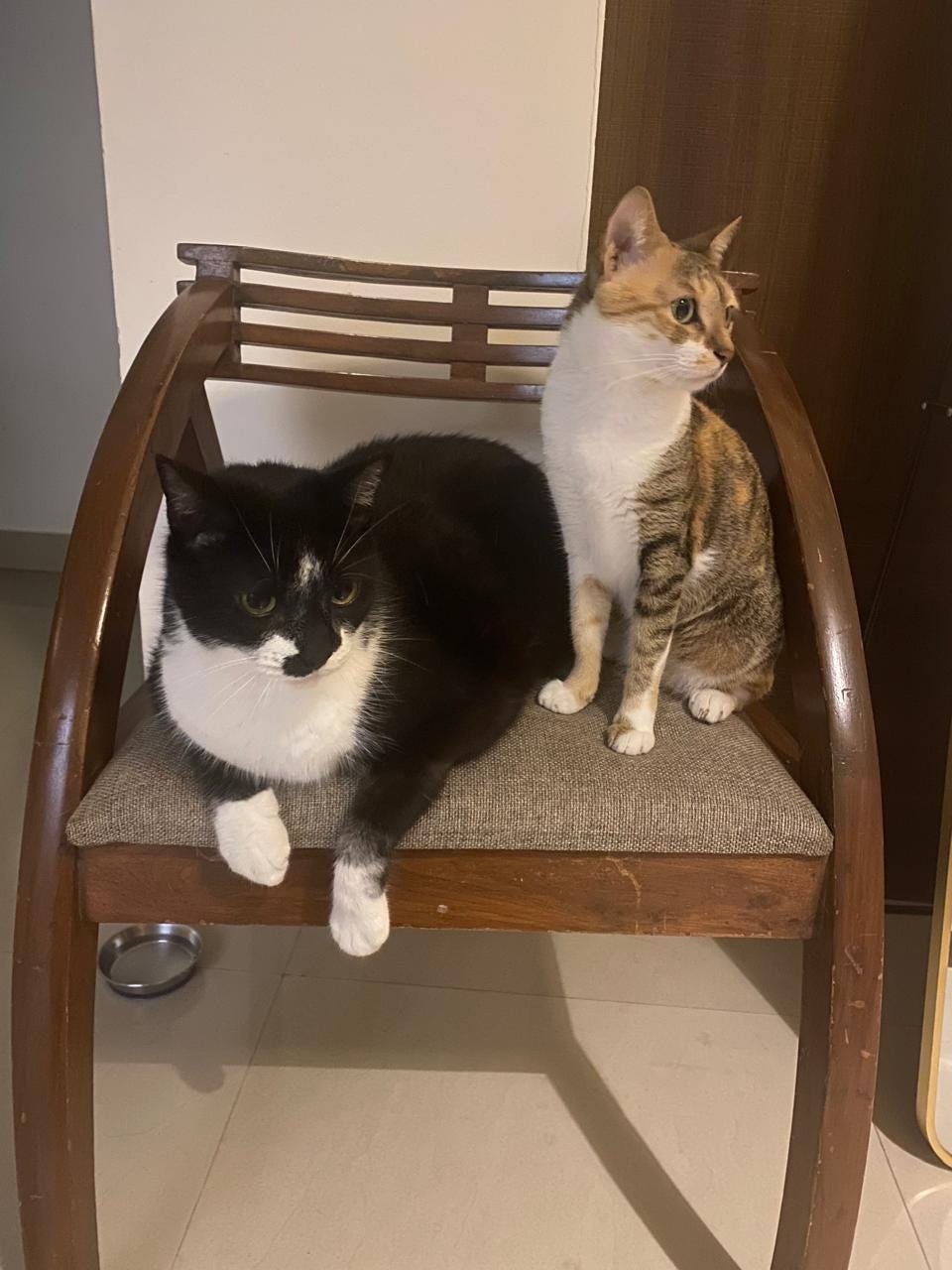Turning Shipping Containers Into Shelters
Helping Homeless People Rebuild Their Lives
Today’s sustainable snapshot👇🏽
Turning Shipping Containers Into Shelters
Quiz Time!
Startup of the Week: Mimbly
5 Sustainable Brands That I Recently Discovered
3 Stories That Lifted My Spirits This Week
Turning Shipping Containers Into Homes
In Phoenix, Arizona (US), temperatures can soar upto 122F (50C). The homeless people in the city don’t have a lot of avenues to protect themselves from this scorching heat.
So the city has come up with an innovative solution: turning shipping containers into homes.
It’s creating safe, indoor spaces for around 80 homeless.
It has started with four 40-foot steel converted shipping containers.
They are further split into private 5-by-8-foot rooms, with one resident per room and upto 20 people per container.
All of the containers offer central air conditioning powered by solar energy.
The solar panels are placed on top of all these containers.
The facility also has:
Shared restrooms
Showers
Laundry services
And they also help the residents with workforce development, life skills programming, and companion animal services.
An innovative solution that lies at the crossroads of social issues and climate change. Something that can also be replicated by other cities around the world. I am sure we don’t have a shortage of discarded shipping containers!
Also reminds me of one of our go-to places when we were in Toronto — STACKT Market, which was also made using shipping containers.
⌛ Time for the quiz of the week
Note: Answer at the end of the newsletter. No one (including me) can see your response, so feel free to vote. 😉
✨ Startup of the Week: Mimbly
Our clothes are mostly made of synthetic fibers. So when we wash them, they release microplastics — those tiny plastic particles that are less than 5mm in size!
This Swedish startup is tackling that problem.
Side note: If you would like to read about synthetics in our clothes, here are a few articles I’ve written on that:
So, textiles account for upto 35% of microplastic pollution. Swedish startup Mimbly has made a device called Mimbox that solves that problem. It can be attached to any washing machine.
It filters the water used in the washing cycle — trapping the microplastics and preventing them from entering the environment.
It then analyzes the wastewater and, if it’s clean enough, it’s disinfected, stored, and used again in the next washing cycle. This helps to cut down on the water waste.
It also delays this water from entering the external water treatment plants, helping cut down emissions generated from treating the water.
Zoom out…Although individuals can use Mimbox, I think commercial laundry owners like laundromats, hotels, and hospitals would benefit the most from this, helping them cut down water usage, microplastic waste, and emissions that come from treating wastewater.
Extra…Since we are talking about microplastics and laundry, here’s another piece that might help you (mostly, U.S.-focused, but you’d get some tips that you can implement at your place, anywhere in the world: Simple ways to eliminate microplastics from your laundry.
✅ 5 Sustainable Brands That I Recently Discovered
🇦🇺 Banish: Tackles hard-to-recycle plastic and converts it into phone stands, earrings, and coaster packs.
🇺🇸 Mocean Energy: Uses wave energy to deliver clean, carbon-free, renewable energy.
🇫🇷 Pi POP: Instead of batteries, this e-bike uses supercapacitors - a more sustainable alternative.
🇺🇸 Replenysh: Makes it easier for brands to source and use recycled materials.
🇮🇳 PadCare: Makes sustainable periodcare products.
😹 3 Stories That Lifted My Spirits This Week
⚡ Renewable Energy Blows Away Fossil Fuels
According to recent UN reports, renewable energy has reached a "positive tipping point" with over 90% of new capacity being cheaper than fossil fuels. In 2024, global renewable energy capacity expanded by nearly 20% to 582 gigawatts, with almost all new power capacity worldwide coming from renewables and nearly three-quarters of electricity growth generated from wind, solar, and other green sources.
🪵 Sweden's Wooden Wonderland
Stockholm Wood City, Sweden's ambitious timber metropolis, is under construction ahead of schedule, with plans to deliver 2,000 sustainable homes by 2027. Beyond using wood from Sweden's abundant forests (70% woodland coverage), this eco-friendly development will feature bike storage, a subway station, rooftop gardens, solar panels, and even neighborhood beehives. According to research, this approach could significantly reduce carbon emissions while creating spaces that enhance human well-being.
🚺 Pink Power in Motion
The Pink City Rickshaw Co. in Jaipur, India, is transforming lives by training and employing 200 women from low-income households as drivers of eco-friendly electric rickshaws. This innovative initiative by ACCESS Development Services provides women with financial independence as equity holders in their own company while offering tourists unique, sustainable tours of the walled city's attractions in custom-designed pink e-rickshaws.
Give that 💚 a little tap if this edition helped you learn something new about sustainability and climate change. Have a good weekend :)


